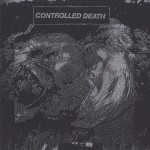 Seit Maso Yamazaki, der „Gott des Lärms“, sein manisch-eruptives Noiseprojekt Masonna weitgehend ruhen lässt und augenblicklich seine Energie auf das dunkle, man möchte fast sagen: depressive Death Industrial-Projekt Controlled Death fokussiert, sind seit 2018 zahlreiche Tonträger erschienen. Dabei hat man den Eindruck, dass er wechselt zwischen massiven, umfangeichen Veröffentlichungen, wie etwa dem Doppeltape „Black Scorpion Rising“ oder der kürzlich erschienenen Doppel-LP „Ritualistic Mutilation In The Bloody Darkness“ und Weiterlesen
Seit Maso Yamazaki, der „Gott des Lärms“, sein manisch-eruptives Noiseprojekt Masonna weitgehend ruhen lässt und augenblicklich seine Energie auf das dunkle, man möchte fast sagen: depressive Death Industrial-Projekt Controlled Death fokussiert, sind seit 2018 zahlreiche Tonträger erschienen. Dabei hat man den Eindruck, dass er wechselt zwischen massiven, umfangeichen Veröffentlichungen, wie etwa dem Doppeltape „Black Scorpion Rising“ oder der kürzlich erschienenen Doppel-LP „Ritualistic Mutilation In The Bloody Darkness“ und Weiterlesen
Archiv des Autors: Michael
DANIEL MENCHE: Now We Are A Ghost Ship
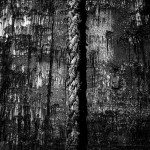 Daniel Menche macht seit Jahrzehnten Geräuschmusik und hat auf zahlreichen Labeln wie z.B. Side Effects, Soleimoon, Alien8 oder Important veröffentlicht, hat mit Andrew Liles, John Wiese, KK Null oder Mamiffer gearbeitet und aus verschiedenstem Ausgangsmaterial, so z.B. Geräuschen des Körpers (wie auf „Screaming Caress“), Gamelan Gongs („Marriage of Metals“), dem Surren von Strommasten („From Here To Electricity“) oder Wasserfällen („Kataract“), um nur ein paar Beispiele zu nennen, die sich (fast) beliebig fortsetzen ließen, beeindruckende sowohl lärmende als auch bedrückende Klanglandschaften geschaffen. Weiterlesen
Daniel Menche macht seit Jahrzehnten Geräuschmusik und hat auf zahlreichen Labeln wie z.B. Side Effects, Soleimoon, Alien8 oder Important veröffentlicht, hat mit Andrew Liles, John Wiese, KK Null oder Mamiffer gearbeitet und aus verschiedenstem Ausgangsmaterial, so z.B. Geräuschen des Körpers (wie auf „Screaming Caress“), Gamelan Gongs („Marriage of Metals“), dem Surren von Strommasten („From Here To Electricity“) oder Wasserfällen („Kataract“), um nur ein paar Beispiele zu nennen, die sich (fast) beliebig fortsetzen ließen, beeindruckende sowohl lärmende als auch bedrückende Klanglandschaften geschaffen. Weiterlesen
PHURPA: Hymns Of Gyer
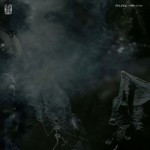 Viele denken beim Thema Schamanismus heutzutage wahrscheinlich weniger an Mircea Eliade als an auf Island gedrehte und in Spitzbergen spielende Mysteryserien oder an die zahlreichen/zahllosen Scharlatane, die denjenigen, die auf der Suche nach einem weiteren Mosaikstück für ihre Bricolagespiritualität sind, ihre Dienste anbieten. Weiterlesen
Viele denken beim Thema Schamanismus heutzutage wahrscheinlich weniger an Mircea Eliade als an auf Island gedrehte und in Spitzbergen spielende Mysteryserien oder an die zahlreichen/zahllosen Scharlatane, die denjenigen, die auf der Suche nach einem weiteren Mosaikstück für ihre Bricolagespiritualität sind, ihre Dienste anbieten. Weiterlesen
Neue Veröffentlichung von William Basinski und Richard Chartier
William Basinski hat in den vergangenen Jahren mehrfach mit Richard Chartier zusammengearbeitet. Jüngst wurde unter dem Titel „Something From The Pink House“ exklusiv bei Bandcamp eine 2004 entstandene Liveaufnahme als Download veröffentlicht. Von Basinski selbst als „archival oddity“ tituliert, fand diese Liveimprovisation im Haus von Basinskis Partner James Elaine statt. Teile des Materials wurden später für das 2013 veröffentlichte Album „Aurora Liminalis“ verwendet.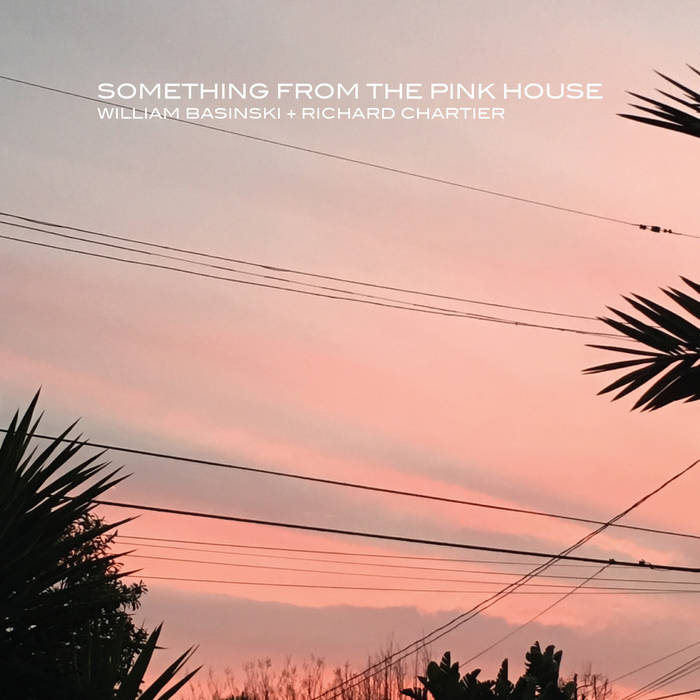 Weiterlesen
Weiterlesen
GOLEM MECANIQUE: Nona, Decita et Morta
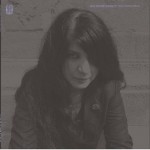 Unter der Namen Golem Mecanique hat die Französin Karen Jebane in den letzten zehn Jahren eine Reihe von teilweise konzeptionellen Arbeiten veröffentlicht, so z. B. Alben beeinflusst von Dantes Göttlicher Komödie („Chant IV“) oder Pasolini/Euripides („Medea“). Sie selbst spricht auf ihrer Bandcampseite als Bezeichnung für ihre Musik von „Drone Sacred music/ghost /speaking with faded gods /blind spots / Weiterlesen
Unter der Namen Golem Mecanique hat die Französin Karen Jebane in den letzten zehn Jahren eine Reihe von teilweise konzeptionellen Arbeiten veröffentlicht, so z. B. Alben beeinflusst von Dantes Göttlicher Komödie („Chant IV“) oder Pasolini/Euripides („Medea“). Sie selbst spricht auf ihrer Bandcampseite als Bezeichnung für ihre Musik von „Drone Sacred music/ghost /speaking with faded gods /blind spots / Weiterlesen
IAN WILLIAM CRAIG: Red Sun Through Smoke
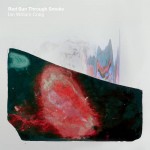 Von all den Künstlern, die in ihren Arbeiten (sich auflösende) Tape(loop)s integrierten, unterschied sich der in Vancouver ansässige Craig immer dadurch, dass der Fokus bei ihm meistens auf den Song gelegt war. „Red Sun Through Smoke“, sein – je nach Zählweise – mitlerweile achtes Album, ist reduziert und um das Klavier zentriert. Weiterlesen
Von all den Künstlern, die in ihren Arbeiten (sich auflösende) Tape(loop)s integrierten, unterschied sich der in Vancouver ansässige Craig immer dadurch, dass der Fokus bei ihm meistens auf den Song gelegt war. „Red Sun Through Smoke“, sein – je nach Zählweise – mitlerweile achtes Album, ist reduziert und um das Klavier zentriert. Weiterlesen
DITTERICH VON EULER-DONNERSPERG / FELIX KUBIN: NNOI#1
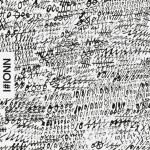 In der NNOI Festival-Reihe werden Aufnahmen von Künstlerinnen und Künstlern veröffentlicht, die auf dem gleichnamigen Festival , “für 12,756 Tonmusik, obskure Lehren & Organ der Weltbauchrednerloge”, gespielt haben (u.a. werden noch Asmus Tietchens und Frieder Butzmann folgen). Den Auftakt macht eine Split-Veröffentlichung: Ditterich von Euler-Donnersperg, Sachwalter des Werkbunds, selbst so titulierter „Knurrhahn“ hat mit den zwischen 1996 und 2014 erschienenen “Pelzwurstliedern”, sogenannten „Reimdichtungen im Geiste Klopstocks mit elektronischem Zuspielband“, originellste, Weiterlesen
In der NNOI Festival-Reihe werden Aufnahmen von Künstlerinnen und Künstlern veröffentlicht, die auf dem gleichnamigen Festival , “für 12,756 Tonmusik, obskure Lehren & Organ der Weltbauchrednerloge”, gespielt haben (u.a. werden noch Asmus Tietchens und Frieder Butzmann folgen). Den Auftakt macht eine Split-Veröffentlichung: Ditterich von Euler-Donnersperg, Sachwalter des Werkbunds, selbst so titulierter „Knurrhahn“ hat mit den zwischen 1996 und 2014 erschienenen “Pelzwurstliedern”, sogenannten „Reimdichtungen im Geiste Klopstocks mit elektronischem Zuspielband“, originellste, Weiterlesen
TAETER: Magnum Opus
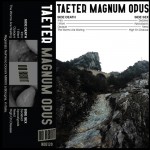 Der Italiener Nicola Vinciguerra arbeitet sich mit seinen verschiedensten (Noise-)Projekten an den genreüblichen Themen (Sex in allen abseitigen Spielarten etc.) fast monomanisch ab und auch sein neues Tape mit dem etwas anmaßenden, hyperbolischen Titel ist bezeichnenderweise in „Side Death“ und „Side Sex“ unterteilt. Diese Apotheose des Abjekts hat passagenweise vielleicht einen etwas infantilen Charakter, aber in einer Zeit, in der teilweise versucht wird, mit einem puritanischen Furor Kunst in all ihren Ausdrucksweisen zu etwas Aseptischem, Sterilem zu machen, ist das vielleicht durchaus verzeihbar. Weiterlesen
Der Italiener Nicola Vinciguerra arbeitet sich mit seinen verschiedensten (Noise-)Projekten an den genreüblichen Themen (Sex in allen abseitigen Spielarten etc.) fast monomanisch ab und auch sein neues Tape mit dem etwas anmaßenden, hyperbolischen Titel ist bezeichnenderweise in „Side Death“ und „Side Sex“ unterteilt. Diese Apotheose des Abjekts hat passagenweise vielleicht einen etwas infantilen Charakter, aber in einer Zeit, in der teilweise versucht wird, mit einem puritanischen Furor Kunst in all ihren Ausdrucksweisen zu etwas Aseptischem, Sterilem zu machen, ist das vielleicht durchaus verzeihbar. Weiterlesen
WILLIAM BASINSKI: Hymns Of Oblivion
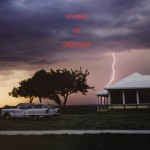 Als 2006 „Not Alone“, die umfangreiche von Mark Logan und David Tibet kuratierte 5CD-Box, deren Erlös den Ärzten ohne Grenzen zukam, veröffentlicht wurde, fand sich auch ein exklusives Stück William Basinskis, was allerdings aus dem restlichen damals bekannten Werk herausstach. Nicht unbedingt wegen seiner Länge respektive Kürze, denn obwohl Basinski tendenziell die Langform vorzieht und Weiterlesen
Als 2006 „Not Alone“, die umfangreiche von Mark Logan und David Tibet kuratierte 5CD-Box, deren Erlös den Ärzten ohne Grenzen zukam, veröffentlicht wurde, fand sich auch ein exklusives Stück William Basinskis, was allerdings aus dem restlichen damals bekannten Werk herausstach. Nicht unbedingt wegen seiner Länge respektive Kürze, denn obwohl Basinski tendenziell die Langform vorzieht und Weiterlesen
AK’CHAMEL, THE GIVER OF ILLNESS: The Totemist
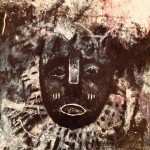 Die hinter skurillen Masken sich versteckenden Bandmitglieder, die vielleicht irgendwann einmal ein Festival mit den Residents und Caroliner spielen sollten, haben zahlreiche Tapes veröffentlicht. Die bisherigen Aufnahmen mit ihren rituellen Gesängen waren geprägt von einem verrauschten Lo-Fi-Sound, der an frühe Nový Svět denken ließ und der dem Projekt eine Aura des Authentischen gab (ähnlich wie bei frühen Ain Soph). Weiterlesen
Die hinter skurillen Masken sich versteckenden Bandmitglieder, die vielleicht irgendwann einmal ein Festival mit den Residents und Caroliner spielen sollten, haben zahlreiche Tapes veröffentlicht. Die bisherigen Aufnahmen mit ihren rituellen Gesängen waren geprägt von einem verrauschten Lo-Fi-Sound, der an frühe Nový Svět denken ließ und der dem Projekt eine Aura des Authentischen gab (ähnlich wie bei frühen Ain Soph). Weiterlesen
ASMUS TIETCHENS / CV LIQUIDSKY: Monoposto
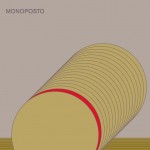 Die große, 2003 begonnene 18-teilige Wiederveröffentlichungsreihe von Asmus Tietchens’ früheren Arbeiten kommt mit Nummer 17 langsam an ihr Ende; in einer erneuten Zusammenarbeit veröffentlichen Die Stadt und Auf Abwegen das mit CV Liquidsky zwischen 1988 und 1990 entstandene und ursprünglich 1991 erschienene Album „Monoposto“. Weiterlesen
Die große, 2003 begonnene 18-teilige Wiederveröffentlichungsreihe von Asmus Tietchens’ früheren Arbeiten kommt mit Nummer 17 langsam an ihr Ende; in einer erneuten Zusammenarbeit veröffentlichen Die Stadt und Auf Abwegen das mit CV Liquidsky zwischen 1988 und 1990 entstandene und ursprünglich 1991 erschienene Album „Monoposto“. Weiterlesen
ELECTRIC SEWER AGE: Contemplating Nothingness
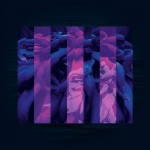 In den letzten Jahren hat Danny Hyde durch seinen – und hier setze jeder das ihm passende Adjektiv ein – Umgang mit Coil-Material für Kontroversen gesorgt. Ich habe schon an anderer Stelle geschrieben, dass die gegenwärtige Situation des Coil-Nachlasses zu den traurigsten Kapiteln der Industrial Culture gehört. Vor etlichen Jahren debütierte Hyde nach langen Jahren als Studiomann als Solokünstler unter dem Projektnamen Aural Rage mit rhythmischen Tracks und auf dem bislang einzigen Album überarbeitete er auch Stücke, die er mit/für Coil geschrieben hatte. Mit „FJ Nettlefold“ konnte man dort das letzte von Balance eingesungene Stück hören. Weiterlesen
In den letzten Jahren hat Danny Hyde durch seinen – und hier setze jeder das ihm passende Adjektiv ein – Umgang mit Coil-Material für Kontroversen gesorgt. Ich habe schon an anderer Stelle geschrieben, dass die gegenwärtige Situation des Coil-Nachlasses zu den traurigsten Kapiteln der Industrial Culture gehört. Vor etlichen Jahren debütierte Hyde nach langen Jahren als Studiomann als Solokünstler unter dem Projektnamen Aural Rage mit rhythmischen Tracks und auf dem bislang einzigen Album überarbeitete er auch Stücke, die er mit/für Coil geschrieben hatte. Mit „FJ Nettlefold“ konnte man dort das letzte von Balance eingesungene Stück hören. Weiterlesen
DAVID JACKMAN: Silence In That Time
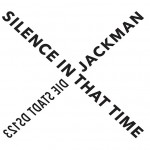 Nach dem Organum-Album “Sorow” aus dem Jahr 2010 herrschte erst einmal Stille und David Jackman schien verstummt zu sein. Dann plötzlich erschien 2018 mit „Raven“ ein neues Album und 2019 mit „Herbstsonne“eine Veröffentlichung unter eigenem Namen. Vor ein paar Monaten brachten Siren Records mit dem lapidar betitelten „Electronics“ ein erstaunlich noisiges Organum-Album heraus, das aus den Alben der letzten Jahre herausstach. Weiterlesen
Nach dem Organum-Album “Sorow” aus dem Jahr 2010 herrschte erst einmal Stille und David Jackman schien verstummt zu sein. Dann plötzlich erschien 2018 mit „Raven“ ein neues Album und 2019 mit „Herbstsonne“eine Veröffentlichung unter eigenem Namen. Vor ein paar Monaten brachten Siren Records mit dem lapidar betitelten „Electronics“ ein erstaunlich noisiges Organum-Album heraus, das aus den Alben der letzten Jahre herausstach. Weiterlesen
AGVIRRE: Silence
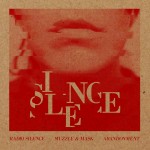 Wer sich vor der zunehmenden Verhipsterung des Black Metals sorgt, der sollte einfach bedenken, dass es für jede (Post-)Black Metal-Band, die auf Corpse Paint, satanische Texte und nicht entzifferbare Logos verzichtet, wahrscheinlich zwanzig “true” Undergroundkapellen gibt, die ihre verrauschten Demos auf Kleinstlabeln veröffentlichen, insofern sollte auch den nach der ersten Zusammenarbeit Werner Herzogs mit Klaus Kinski benannten und aus Manchester stammenden Agvirre, die den Zorn damit zumindest indirekt im Namen tragen, ein Ohr geliehen werden, denn ihre Debüt-EP ist eine starke Veröffentlichung. Weiterlesen
Wer sich vor der zunehmenden Verhipsterung des Black Metals sorgt, der sollte einfach bedenken, dass es für jede (Post-)Black Metal-Band, die auf Corpse Paint, satanische Texte und nicht entzifferbare Logos verzichtet, wahrscheinlich zwanzig “true” Undergroundkapellen gibt, die ihre verrauschten Demos auf Kleinstlabeln veröffentlichen, insofern sollte auch den nach der ersten Zusammenarbeit Werner Herzogs mit Klaus Kinski benannten und aus Manchester stammenden Agvirre, die den Zorn damit zumindest indirekt im Namen tragen, ein Ohr geliehen werden, denn ihre Debüt-EP ist eine starke Veröffentlichung. Weiterlesen
Drew McDowall führt Time Machines in Köln auf
Im Rahmen des seit 2011 jährlich in Köln stattfindenden Festivals Acht Brücken, das sich verschiedensten Spielarten zeitgenössischer Musik widmet, führt Drew McDowall am 02. Mai 2020 „Time Machines“ auf. Zusammen mit John Balance und Peter Christopherson entstand 1997 das gleichnamige Album, auf dem vier lange, nach verschiedenen Halluzinogenen benannte Tracks unter dem Motto „persistence is all“ zu hören waren und von denen es hieß, sie würden eine Reise durch die Zeit ermöglichen. Die Hörerfahrung wird sicher eine interessante sein, kann man doch im Innern des 1998 veröffentlichten Albums lesen: “artifacts generated by your listening environment are an integral part of the experience”.
LOUISE BOCK: Sketch For Winter VII – Abyss: For Cello
 Spires That In The Sunset Rise gehören wahrscheinlich zu den originellsten Vertreterinnen einer Form von Folk, die das Attribut „weird“ wirklich verdient. Zwischenzeitlich zu einem Quartett angewachsen, ist die Band seit einigen Jahren zu einem Duo, bestehend aus Ka Baird und Taralie Peterson, geschrumpft. Zuletzt erschien das recht jazzige “House Ecstatic (Cover Your Blood)” Weiterlesen
Spires That In The Sunset Rise gehören wahrscheinlich zu den originellsten Vertreterinnen einer Form von Folk, die das Attribut „weird“ wirklich verdient. Zwischenzeitlich zu einem Quartett angewachsen, ist die Band seit einigen Jahren zu einem Duo, bestehend aus Ka Baird und Taralie Peterson, geschrumpft. Zuletzt erschien das recht jazzige “House Ecstatic (Cover Your Blood)” Weiterlesen
KEELEY FORSYTH: Debris
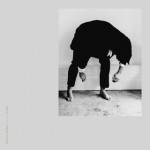 Wenn Künstler das Medium wechseln, dann muss das nicht notwendigerweise, kann aber durchaus zu interessanten und originellen Resultaten führen, wie im Fall der britischen Schauspielerin Keeley Forsyth, die nun 40-jährig mit „Debris“, einem Album, das seinen Ursprung in einer Erkrankung hat, die 2017 dazu führte, dass Forsyth für einen Monat nicht dazu in der Lage war, ihre Zunge zu bewegen, debütiert. Weiterlesen
Wenn Künstler das Medium wechseln, dann muss das nicht notwendigerweise, kann aber durchaus zu interessanten und originellen Resultaten führen, wie im Fall der britischen Schauspielerin Keeley Forsyth, die nun 40-jährig mit „Debris“, einem Album, das seinen Ursprung in einer Erkrankung hat, die 2017 dazu führte, dass Forsyth für einen Monat nicht dazu in der Lage war, ihre Zunge zu bewegen, debütiert. Weiterlesen
CHRISTOPHER SLATSKY: The Immeasurable Corpse Of Nature
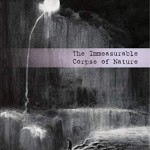 Gerade im angloamerikanischen Raum gibt es das Narrativ, dass das, was gemeinhin weird fiction genannt wird, in ein goldenes Zeitalter getreten sei und es eine Vielzahl von talentierten Autoren und Autorinnen und ambitionierte (Klein-)Verlage gebe. Das ist sicher zu einem großen Teil richtig, gleichzeitig hat man aber manchmal den Eindruck einer kleinen Szene, in der jeder jeden kennt und (deswegen) jedes noch so mediokre Buch als ein Meisterwerk (an-)gepriesen wird. Weiterlesen
Gerade im angloamerikanischen Raum gibt es das Narrativ, dass das, was gemeinhin weird fiction genannt wird, in ein goldenes Zeitalter getreten sei und es eine Vielzahl von talentierten Autoren und Autorinnen und ambitionierte (Klein-)Verlage gebe. Das ist sicher zu einem großen Teil richtig, gleichzeitig hat man aber manchmal den Eindruck einer kleinen Szene, in der jeder jeden kennt und (deswegen) jedes noch so mediokre Buch als ein Meisterwerk (an-)gepriesen wird. Weiterlesen
O YUKI CONJUGATE: Sleepwalker
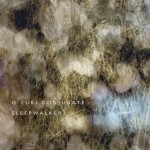 Basierte das 2018 veröffentlichte Album „Tropic“ auf ursprünglich Mitte der 90er Jahre komponiertem Material, das später be- und überarbeitet wurde, handelt es sich bei „Sleepwalker“ um eine komplett neue Veröffentlichung. Aufgenommen während einiger Auftritte in den Jahren 2017 bis 2019, sind die auf „Sleepwalker“ enthaltenen Stücke Soundtrack des gleichnamigen Films (von Gründungsmitglied Andrew Hulme), über den es heißt, er habe eine „loose dream-like narrative“. Weiterlesen
Basierte das 2018 veröffentlichte Album „Tropic“ auf ursprünglich Mitte der 90er Jahre komponiertem Material, das später be- und überarbeitet wurde, handelt es sich bei „Sleepwalker“ um eine komplett neue Veröffentlichung. Aufgenommen während einiger Auftritte in den Jahren 2017 bis 2019, sind die auf „Sleepwalker“ enthaltenen Stücke Soundtrack des gleichnamigen Films (von Gründungsmitglied Andrew Hulme), über den es heißt, er habe eine „loose dream-like narrative“. Weiterlesen
